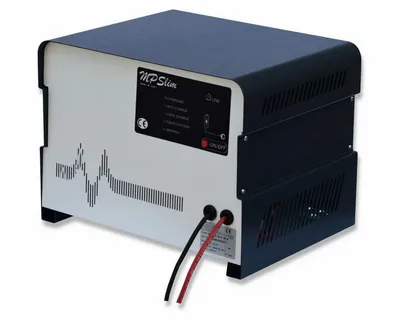Off-grid solar power systems provide a way to generate and store energy independently from traditional power grids. They are increasingly popular among those seeking sustainable energy solutions. Central to these systems are batteries, which store energy produced by solar panels for use during periods without sunlight. The efficiency and reliability of an off-grid solar power system largely depend on the quality of the batteries used. Selecting the Best Batteries for Solar off Grid involves understanding various factors, such as energy storage capacity and the impact of environmental conditions. This ensures the system can meet energy demands effectively and remain operational over time.
Key Considerations for Best Batteries for Solar Off-Grid
When selecting batteries for solar off-grid use, numerous factors must be evaluated to ensure optimal performance and longevity. Energy storage capacity is crucial in determining how much power can be stored for later use. Cycle life or the number of complete charge and discharge cycles a battery can endure before its capacity diminishes, is also important.
Maintenance requirements, safety features, and initial costs also play significant roles in the decision-making process. It is essential to consider the specific energy needs and environmental conditions of the off-grid system to select batteries that will perform reliably and efficiently over time.
Advantages of Lithium-Ion Batteries for Off-Grid Solar Power
Lithium-ion batteries are highly regarded for their efficiency and performance in off-grid solar power systems. They possess a high energy density, allowing for substantial energy storage in a compact form. This makes them ideal for applications where space is limited. Additionally, lithium-ion batteries boast a long cycle life, meaning they can endure numerous charge and discharge cycles without significant capacity loss.
Minimal maintenance requirements further enhance their appeal, reducing the need for regular upkeep. The stability and efficiency of lithium-ion batteries make them a reliable choice for those seeking to optimise their off-grid solar power systems.
Exploring Lead-Acid Batteries for Off-Grid Solar Power
Lead-acid batteries have long been a staple in off-grid solar power systems due to their affordability and accessibility. They are preferred for their lower initial investment, making them an attractive option for those with budget constraints. Despite their cost advantages, lead-acid batteries have drawbacks, including shorter cycle life and lower efficiency than newer technologies like lithium-ion.
These batteries typically require more frequent maintenance to ensure optimal performance. Additionally, they are more sensitive to temperature fluctuations, affecting their longevity and efficiency. As a result, while lead-acid batteries remain a viable choice for many, they are often considered less optimal for long-term, high-efficiency applications.
The Role of Nickel-Iron Batteries in Off-Grid Solar Systems
Nickel-iron batteries provide unique advantages for off-grid solar systems, particularly in terms of durability and resistance to harsh environmental conditions. These batteries are well-suited for remote areas where maintenance is challenging, as they can endure rough handling and extreme temperatures without significant performance degradation. Despite their higher initial cost than other battery types, nickel-iron batteries offer a longer lifespan, potentially offsetting the initial investment.
Their ability to handle deep discharge cycles without damaging the cells further enhances their appeal. Additionally, they are less prone to issues like sulfation, which can affect other battery types. For those prioritising longevity and reliability in challenging conditions, nickel-iron batteries present a compelling option.
Importance of Battery Management Systems for Off-Grid Solar Power
A battery management system (BMS) plays a vital role in off-grid solar power systems by ensuring the optimal performance and longevity of the batteries. It monitors various parameters such as voltage, current, and temperature, providing real-time data to prevent issues like overcharging and deep discharging.
By maintaining a balanced charge and discharge cycle, a BMS helps preserve battery health. Furthermore, it enhances safety by detecting irregularities and protecting the system from potential hazards. Implementing a BMS can significantly reduce maintenance needs and prolong the operational lifespan of the batteries, making it an essential component for efficient off-grid solar power systems.
Comparing Depth of Discharge in Best Batteries for Off Grid Solar Power
Depth of discharge (DoD) is critical when selecting the Best Batteries for Off Grid Solar Power. DoD indicates the proportion of the battery’s capacity utilised during discharge. Batteries with a higher allowable DoD can provide more usable energy from their stored capacity without compromising lifespan.
For instance, lithium-ion batteries typically offer a higher DoD than lead-acid batteries, enabling more efficient energy usage. The right DoD selection balances energy needs and ensures battery longevity. Understanding DoD helps in selecting batteries that align with the specific requirements of the off-grid solar power system.
Evaluating Temperature Tolerance in Batteries for Off-Grid Solar Power
Temperature fluctuations can greatly influence the efficiency and lifespan of batteries in off-grid solar power systems. High temperatures may accelerate the degradation of battery components, reducing their overall capacity and operational life. Conversely, extremely low temperatures can decrease the battery’s ability to hold a charge. To ensure consistent performance, assessing a battery’s temperature tolerance is crucial. Batteries designed with wider temperature ranges can better withstand extreme conditions.
In some cases, incorporating temperature-controlled environments or using insulation materials can help mitigate temperature-related issues. Choosing batteries with robust temperature tolerance is vital for maintaining the reliability and efficiency of off-grid solar power systems.
Considerations for Battery Sizing in Off-Grid Solar Power Systems
Proper battery sizing in off-grid solar power systems is essential to ensure energy requirements are met efficiently and economically. Determining the appropriate battery size involves an in-depth analysis of the system’s energy consumption patterns, considering peak and average usage. It is necessary to factor in the battery’s depth of discharge (DoD) and cycle life to avoid premature degradation.
Oversizing can lead to unnecessary expenses, while undersizing may result in insufficient energy storage, compromising the system’s reliability. Additionally, a buffer for unexpected energy demands or inefficiencies can enhance the system’s resilience. Balancing these aspects ensures a cost-effective and reliable off-grid solar power solution.
Impact of Battery Efficiency on Off-Grid Solar Power Systems
Battery efficiency significantly influences off-grid solar power systems’ performance and economic viability. It encompasses the energy losses that occur during the charging and discharging processes. Batteries with high round-trip efficiency retain a greater proportion of energy, making it available for use. This characteristic is particularly important for off-grid systems, where maximising energy utilisation is crucial.
Efficient batteries reduce the need for frequent recharging, extending their operational lifespan and reducing maintenance costs. Additionally, high-efficiency batteries can lower the overall cost of the system by reducing the number of solar panels required to generate the same amount of usable energy. Choosing batteries with superior efficiency contributes to a more reliable and cost-effective off-grid solar power setup.
Environmental and Disposal Considerations for Best Batteries for Solar Off-Grid
The environmental impact of battery manufacturing and disposal is a significant factor when choosing the best batteries for solar off-grid systems. Different battery types vary in ecological footprints due to the materials and processes involved in their production. For instance, lead-acid batteries require the extraction and processing of lead, which poses environmental and health risks if not managed correctly. Similarly, the production of lithium-ion batteries involves mining lithium, cobalt, and other rare metals, which can lead to substantial environmental degradation if not conducted responsibly.
Recycling and proper disposal practices are essential to mitigate these impacts. Lead-acid batteries are widely recycled, with a high percentage of their reusable components, thus reducing waste. Conversely, the recycling infrastructure for lithium-ion batteries is still developing, though improvements are being made to enhance their recyclability.
Efforts to build more sustainable battery technologies are ongoing, with researchers exploring alternative materials and methods to reduce environmental harm. Emphasising responsible battery disposal and supporting recycling initiatives can significantly lessen the ecological footprint of off-grid solar power systems.
Future Trends in Batteries for Off Grid Solar Power
Advances in battery technology are poised to transform off-grid solar power systems. Solid-state batteries, for example, are attracting significant interest due to their potential for higher energy density and improved safety features. Batteries for Off Grid Solar Power replace the liquid electrolyte in traditional batteries with a solid one, enhancing both performance and longevity. Another promising development is the utilisation of flow batteries, which offer the advantage of decoupling energy storage capacity from power output, allowing for scalable solutions tailored to specific energy needs.
In addition, research is focusing on improving the sustainability of battery production and disposal. Efforts are underway to develop batteries using more abundant and less environmentally damaging materials, such as sodium-ion and silicon-based technologies. These alternatives could reduce reliance on rare and expensive elements, lowering the overall ecological footprint of battery systems. Innovations in recycling technologies are also being pursued to enhance the reclaiming of valuable components from spent batteries, further contributing to environmental conservation.
Emerging trends like these underscore the continuous evolution of battery technology. These advancements aim to deliver more efficient, cost-effective, and eco-friendly solutions for off-grid solar power applications. As they materialise, they promise to significantly enhance the viability and appeal of these systems.
Conclusion
Selecting the best Batteries for Solar off Grid power involves careful consideration of energy storage capacity, cycle life, and environmental impact. Lithium-ion batteries excel in energy density and efficiency, while lead-acid batteries offer affordability. Nickel-iron batteries provide durability in harsh conditions. A robust battery management system is crucial for optimal performance and longevity. Depth of discharge, temperature tolerance, and proper sizing are vital for system reliability. Environmental and disposal considerations highlight the importance of sustainable battery technologies. Future trends, such as solid-state and flow batteries, promise enhanced efficiency and reduced ecological footprints, ensuring the continued advancement of off-grid solar power systems.
Frequently Asked Questions
What are the key factors to consider when selecting the Best Batteries for Solar off Grid?
Energy storage capacity, cycle life, maintenance requirements, and environmental impact are the key factors to consider when selecting the Best Batteries for Solar off Grid.
Why are lithium-ion batteries often preferred for off-grid solar systems?
High energy density, long cycle life, and minimal maintenance.
What is the role of a battery management system (BMS) in an off-grid solar power system?
To monitor and regulate battery parameters, ensuring optimal performance and safety.
How does depth of discharge (DoD) affect battery selection?
It indicates the usable energy from a battery, influencing efficiency and lifespan.
What are the environmental considerations for batteries used in off-grid solar systems?
Material sourcing, manufacturing processes, recycling, and disposal practices.
| Related Business Listings |
| Contact Directory |
| Local Business Profiles |




